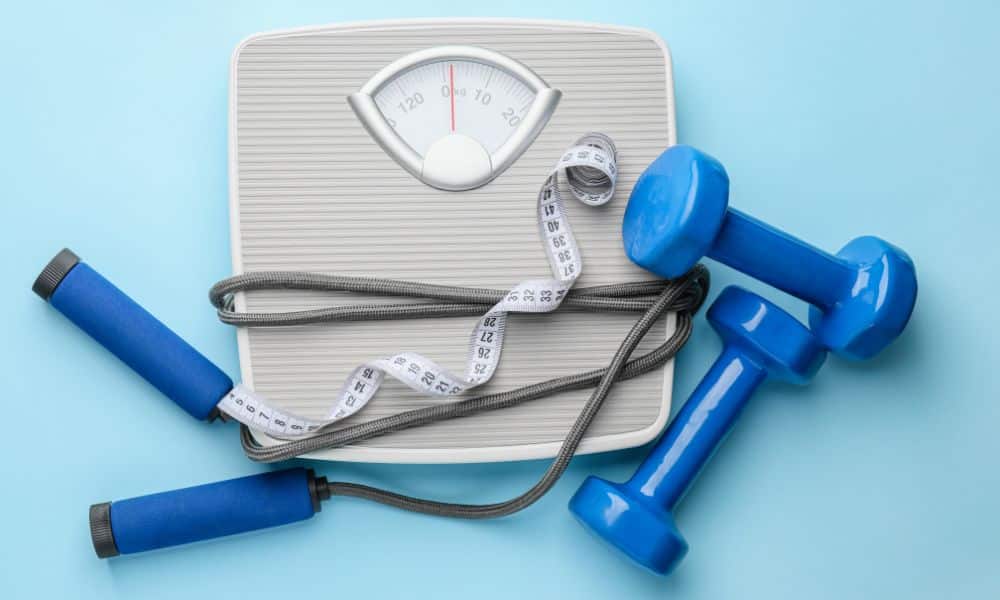Do you want to know how sleep affects weight loss and muscle building? Most people focus on their diet and exercise routine when achieving fitness goals. However, sleep is an often overlooked factor that significantly impacts weight loss and muscle building. Unhealthy sleep habits can disrupt the delicate balance of our body’s processes, hindering progress and thwarting our efforts to reach peak physical performance.
This article will explore how inadequate sleep can prevent you from losing weight and building muscle and why prioritizing restorative sleep is crucial for overall fitness success.
Impact on Hormones
Sleep plays a vital role in regulating various hormones influencing appetite, metabolism, and muscle development. Insufficient sleep disrupts the balance of two essential hormones:
a. Leptin: Leptin is responsible for signaling fullness and satiety. When we lack sleep, leptin levels decrease, increasing appetite and potentially overeating.
b. Ghrelin: Ghrelin is the “hunger hormone” and stimulates appetite. Lack of sleep elevates ghrelin levels, increasing hunger and cravings, especially for high-calorie, unhealthy foods.
Increased Cortisol Levels
Sleep deficiency can lead to higher levels of the stress hormone cortisol. Elevated cortisol levels promote muscle tissue breakdown and encourage fat storage, particularly in the abdominal area. This can lead to reduced muscle mass and increased body fat, making it harder to achieve a lean and toned physique.
Impaired Exercise Performance
Adequate sleep is essential for optimal exercise performance. When you don’t get enough rest, your energy levels, motivation, and focus can suffer, leading to lackluster workouts and decreased intensity. This, in turn, hampers muscle development and reduces the number of calories burned during exercise, hindering weight loss efforts.
Reduced Muscle Recovery
During deep sleep, the body undergoes critical processes of repair and recovery. Sleep is when the muscles repair and grow after exercise-induced stress. Without enough restorative sleep, the recovery process is compromised, and muscle soreness can persist for extended periods, negatively impacting your ability to train effectively and build muscle mass.
Metabolic Slowdown
Sleep deprivation can lead to a slower metabolism. When the body is tired, it conserves energy, decreasing the number of calories burned at rest. A sluggish metabolism can hinder weight loss and muscle-building efforts, as the body utilizes stored fat for energy less efficiently.
Increased Cravings for Unhealthy Foods
Poor sleep can influence food choices and increase cravings for sugary and high-fat foods. The combination of heightened ghrelin levels and impaired decision-making due to tiredness can lead to poor dietary choices, sabotaging your weight loss and muscle-building goals.
Conclusion
In pursuing a healthier and fitter lifestyle, we must recognize that sleep is as essential as diet and exercise. Unhealthy sleep habits can sabotage weight loss and muscle-building efforts by disrupting hormone levels, impairing exercise performance, and hindering muscle recovery.
Prioritizing restorative sleep is crucial for achieving fitness goals and maintaining overall well-being. Aim for 7-9 hours of quality sleep each night, establish a consistent sleep schedule, and create a conducive sleep environment to maximize the benefits of sleep on your journey to improved fitness and vitality.
Remember, a well-rested body is better equipped to take on the challenges of a fitness regimen and achieve optimal results. If you or someone you know is looking to improve your health, share this article on Facebook or Twitter so that others can learn more about self-care.




